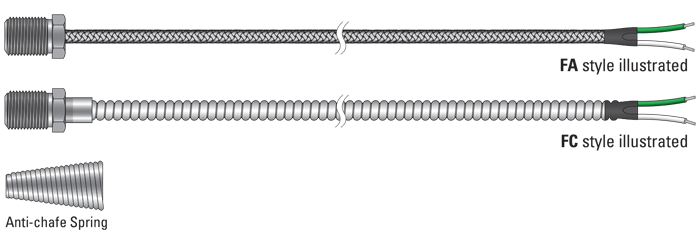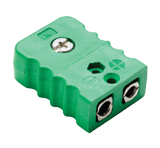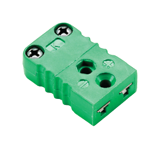Bolt (Nozzle) Thermocouple (Type 4)
Plastics Industry Thermocouples
 Request a Quote
Buy Online from TC Direct
Data Sheet
Request a Quote
Buy Online from TC Direct
Data Sheet
TC - Trusted by UK manufacturers, OEMs, and research labs for over 50 years.
Suitable for extruder nozzle, motor and pipe temperatures etc., these bolt sensors are available as standard in thermocouple types K, T, J, N and E. They can be supplied mounted into any bolt as required by the application and are available both as a fixed or a rotating bolt. They are supplied with either stainless steel braided fibrgelass cable, which can be fitted with an anti-chafe spring if required, or alternatively, for more arduous applications, they can be supplied with fibreglass cable inside a flexible atainless ateel conduit (armour). Generally suitable up to 235°C depending upon the bolt used. Thermocouple junctions are grounded to the bolt as standard but can be insulated if required. We also welcome receiving your free issued bolts for manufacturing into a completed sensor.
Frequently Asked Questions
- What is a thermocouple and how does it work?
A thermocouple is a type of temperature sensor that generates a voltage when two different metals are joined at one end and exposed to a temperature difference between the "hot" junction (where the temperature is measured) and the "cold" junction (the reference point). This voltage is then measured to determine the temperature at the hot junction. - How do I choose the right thermocouple for my application?
The ideal thermocouple depends on factors such as temperature range, accuracy, termination type, mounting requirements and environmental conditions. We offer a variety of thermocouples with different sheath materials, constructions, terminations, and temperature ratings to meet your needs. If you need specific advice, our engineers are happy to assist! - What is the maximum temperature rating of your thermocouples?
Our thermocouples are designed to handle a wide range of temperatures with some mineral insulated thermocouples able to withstand temperatures up to 1400ºC and ceramic sheathed thermocouples going even higher to 1600ºC. Each product listing includes the maximum temperature rating, so you can choose the best thermocouple for your application.

 France
France Germany
Germany Spain
Spain Netherlands
Netherlands Italy
Italy Hungary
Hungary United States
United States Australia
Australia

